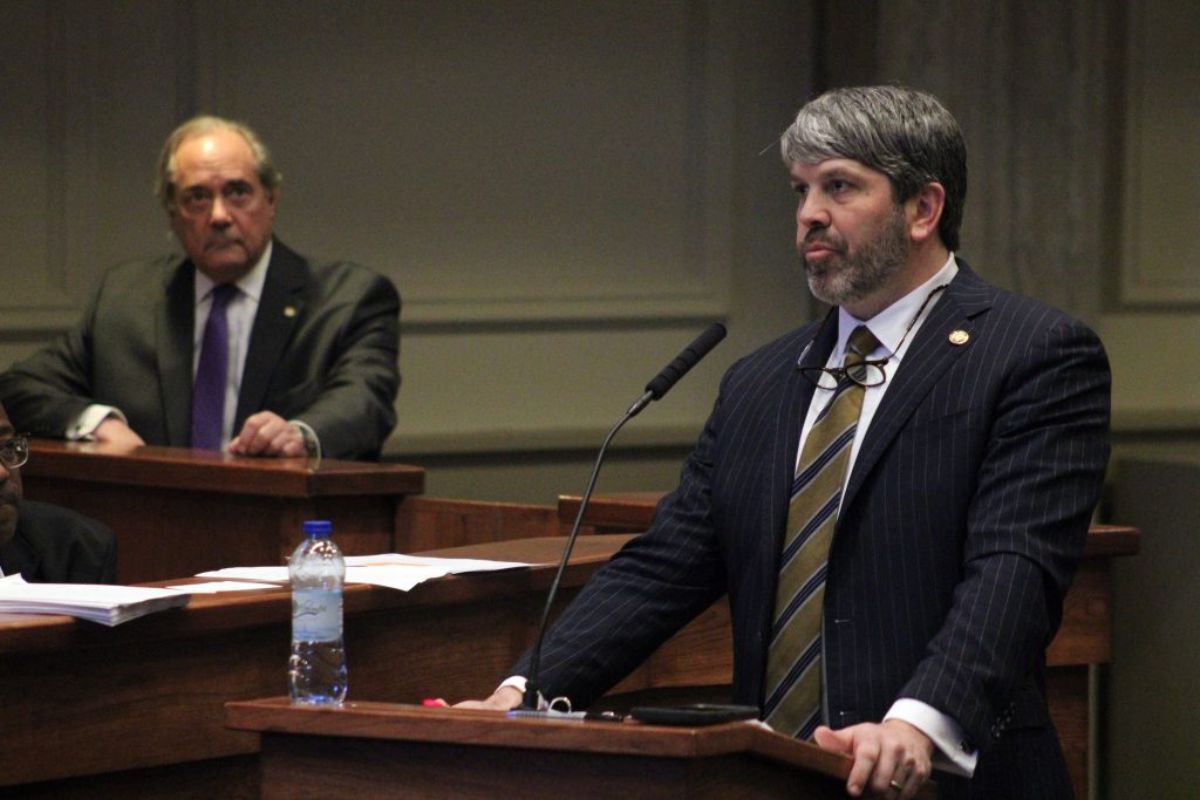Alabama New Voting Law Forces Groups: Alabama’s recent voting law changes have had a significant impact on voter outreach efforts, with organizations like the League of Women Voters and NAACP being forced to suspend key outreach initiatives. The prohibition on receiving compensation for assisting with absentee ballots has raised concerns about the disenfranchisement of vulnerable populations and restricted access to vital support.
As these groups navigate the complex legal landscape and adapt their strategies in response to these challenges, the implications of Alabama’s new voting law continue to reverberate, prompting questions about the broader implications for democratic participation and access to voting assistance.
Key Takeaways
- Voter outreach organizations in Alabama ceased operations due to Senate Bill 1’s restrictions.
- League of Women Voters (LWV) and NAACP halted planned outreach efforts in response to the new law.
- SB1 criminalizes payment for assisting with absentee ballots, impacting voter assistance initiatives.
- Legal challenges by LWV and NAACP highlight concerns of disenfranchisement and voter participation.
- Assisted living facilities seek clarity on law’s impact on residents’ voting rights.
Voter Outreach Organizations Halt Operations in Response to Alabama’s New Law
Several voter outreach organizations in Alabama have ceased their operations in response to the implementation of Alabama’s new law targeting activities related to absentee ballots. The League of Women Voters (LWV) and the National Association for the Advancement of Colored People (NAACP) are among the organizations that have halted planned voter outreach efforts following the enactment of Senate Bill 1.
This legislation, introduced by Sen. Garlan Gudger, R-Cullman, criminalizes the provision and receipt of payment or gifts in exchange for assisting with absentee ballot applications, categorizing such actions as serious felonies with penalties of up to 20 years in prison.
Proponents of the law argue that it is necessary to combat voter fraud and ballot harvesting. However, opponents, including the LWV and NAACP, contend that the law severely impedes their voter outreach initiatives, particularly for vulnerable populations like the elderly and disabled who require assistance to engage in the electoral process.
Kathy Jones, president of LWV Alabama, highlighted the significant impact of the law on their operations, leading them to suspend important services like assisting with absentee ballot applications.
Legal Challenges and Community Impact
Following the legal challenges initiated by voter outreach organizations against Alabama’s new law targeting absentee ballot assistance, concerns have been raised regarding its potential community impact and implications on voter participation.
The lawsuit, spearheaded by the LWV and NAACP, contends that SB1 could disenfranchise voters needing aid during the absentee voting process. The request for an injunction to suspend the law’s enforcement during the ongoing election cycle underscores worries about the legislation’s broad implications, particularly its criminal penalties and perceived constraints on voter assistance efforts.
Leaders like Barnard Simelton from the Alabama NAACP fear that the law may discourage voter turnout, especially among marginalized communities. Additionally, assisted living facilities, represented by the ANHA, are seeking clarity on how the law will affect residents’ voting rights.
ANHA President Brandon Farmer has confirmed collaborative efforts with state authorities to make certain that nursing home residents can comply with the law and access their voting rights.
Legislative Intent and Future Outlook
The legislative intent behind Alabama’s SB1 and its implications for future voting practices have sparked a contentious debate among lawmakers, advocacy groups, and election officials.
Alabama Secretary of State Wes Allen and Republican supporters have defended SB1 as essential for preventing election manipulation and ensuring fairness. They emphasize exemptions for voters with disabilities and seniors, clarifying that assistance with absentee ballots is permissible without compensation. GOP chairman John Wahl reiterated the law’s purpose to protect electoral integrity by banning paid ballot harvesting and unauthorized completion of absentee ballots.
Despite assurances from proponents, organizations like LWV and NAACP are adjusting their outreach strategies to navigate uncertainties over the law’s enforcement. This ongoing legal battle reflects a broader discourse on voting rights and legislative efforts to regulate absentee voting practices in Alabama.
The future outlook remains uncertain as stakeholders grapple with balancing electoral security and voter accessibility under the provisions of SB1.
News in Brief
In response to Alabama’s new voting law, voter outreach organizations like the League of Women Voters and NAACP have been forced to suspend their operations, raising concerns about disenfranchisement and hindered access to voting assistance.
Legal challenges are being initiated against the law, highlighting the uncertainty surrounding its implementation.
As organizations navigate these challenges, the future outlook for voter outreach initiatives in Alabama remains uncertain.
ALSO READ: Governor Ivey Bold Plan: Transforming Disability Rights in Alabama

